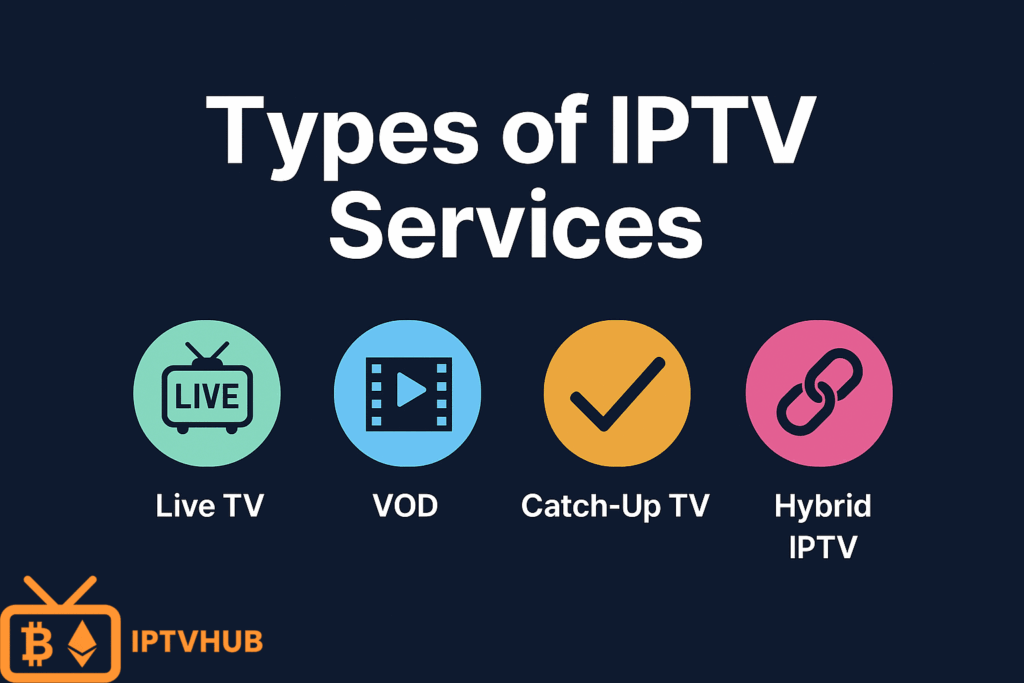Introduction
Internet Protocol Television (IPTV) has transformed the way people consume media. Unlike traditional cable or satellite TV, IPTV delivers content through the internet, offering flexibility, interactivity, and a wide range of options. But not all IPTV services are the same. In this article, we’ll explore the main types of IPTV services, their features, and how they differ, so you can make an informed choice.
1. Live IPTV
Live IPTV streams television channels in real time, similar to traditional broadcast TV.
- Examples: Sports events, news channels, live shows.
- Pros: Instant access, real-time experience.
- Cons: Dependent on internet stability, limited control over playback.
2. Time-Shifted IPTV (Catch-Up TV)
This service allows viewers to watch programs after they’ve been broadcast.
- Examples: Catching up on last night’s news or a missed episode.
- Pros: Flexibility, no need to watch at broadcast time.
- Cons: Limited availability window (e.g., 7 days).
3. Video on Demand (VOD)
VOD lets users select and watch content whenever they want.
- Examples: Movies, TV series, documentaries.
- Pros: Full control, pause/rewind/forward options.
- Cons: Requires strong servers and licensing agreements.
4. Near Video on Demand (nVoD)
A scheduled service where the same content is broadcast at staggered times.
- Examples: Pay-per-view movies or events.
- Pros: Good for popular content, multiple start times.
- Cons: Less flexible than true VOD.
5. Interactive IPTV Services
These services add interactivity to the viewing experience.
- Examples: Voting in live shows, choosing camera angles in sports, interactive ads.
- Pros: Engaging, personalized experience.
- Cons: Requires advanced infrastructure and user devices.
6. Hybrid IPTV
Combines IPTV with traditional broadcast methods (satellite/cable).
- Examples: Some telecom operators offering IPTV alongside cable.
- Pros: Broader coverage, reliability.
- Cons: Higher setup costs.
Conclusion
IPTV services come in many forms, each with unique advantages. Whether you prefer live sports, on-demand movies, or interactive features, IPTV offers something for everyone. Understanding these types helps users choose the right service and providers to meet their needs.


I’m just curious if they are what kinds of plans can you pick and choose what you want and pricing
Absolutely! You can check all our available plans and pricing here — everything is clearly listed so you can choose what works best for you: https://iptvhub.io/products/